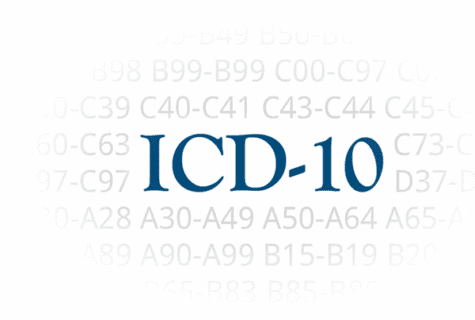Search Results for: Payer Contracting

Auditors recently found that more than half of telehealth services for mental health are billed incorrectly. This online training will help you stop these common coding & billing errors to collect more for these complex claims.
Learn More
Accurately processing provider credentialing and enrollment requires the ability to swiftly navigate the CAQH portal, which recently changed. Discover how to save time and stress by getting a walkthrough from an expert.
Learn More
Get payers to overturn more of your denied claims so that you can receive more of the reimbursement you are due. Expert reveals proven appeal letter writing strategies and templates to quickly get more of your denied claims paid.
Learn More
Both commercial and government payers make provider enrollment more complex than it needs to be, but you’ve got an expert on your side. Get the proven tactics you need to providers approved faster and start getting paid sooner.
Learn More
Failing to collect copays and deductibles can get you into just as much trouble as collecting them incorrectly. Protect your practice against costly violations with the actionable tactics in this healthcare attorney-led online training.
Learn More
Uncover language in your managed care contracts that can help your practice get paid more and avoid hidden pitfalls. Healthcare attorney Michael R. Lowe shows you how to make your managed care contracts work for you.
Learn More
Medical records are legal documents that support every aspect of patient care, and one medical documentation mistake can get you audited. Then violations, penalties, and unpaid claims follow. Protect yourself with this online training.
Learn More
About 83% of your non-Medicare/Medicaid claims are governed by ERISA regulations. However, payers don’t want you to know how to apply these rules to take control of your reimbursement. This training shows you how.
Learn More
Avoid violating Balanced Billing Laws with step-by-step advice from expert Rachel V. Rose, JD, MBA. She’ll help you head off preventable out-of-network, financial hardship, and write-off errors that can cost you millions in penalties.
Learn More
Credentialing and enrollment 101 for physician practices. Step-by-step strategies to help you master credentialing and enrollment basics to avoid errors and ensure that your revenue keeps flowing.
Learn More
Avoid common/costly errors and meet requirements of provider credentialing and enrollment online sites with practical advice from national expert, Tracey Tokheim. Improve your accuracy and results while reducing headaches.
Learn More
When onboarding a new physician into your practice, your process must be flawless. A simple mistake can result in sever reimbursement delays – or worse, payer rule violations. With this online training you’ll get it right the first time.
Learn MoreThe physician credentialing process is a complicated collection of hoops to jump through and moving parts to track. Get a step-by-step, proven process to help you keep cash flowing.
Learn More
Get insurance carriers to reimburse you more. The key is in how you negotiate your managed care contract. Get expert insider negotiation strategies that give you a huge advantage during your contract negotiations.
Learn More
You can collect (and keep!) more money from your claims. During this training, two healthcare attorneys will walk you through how to fight back against reduced payer ERISA claim payments and get paid more of what you are due.
Learn More
CMS has plowed through their appeals backlog, opening their doors to reimbursing your claims FASTER. Get expert tips on winning appeals strategies that convince Medicare and private payers to give you the cash you deserve.
Learn More
You can eliminate enrollment delays, get paid faster, and avoid re-enrollment disasters by getting your mid-sized to large practice set up to perform delegated credentialing. Get expert tactics on getting it right the first time.
Learn More
Don’t give up on your under reimbursing contracts due to lack of payer response to your negotiation requests. Learn how to improve payer contract negotiation results. Get the tools you need to secure higher rates and better terms.
Learn More
Modifier 59 is among the most frequently used modifiers, but also one of the most often denied. Halt those denials and bring in the pay your practice deserves with these essential modifier tips.
Learn More
When your practice gets an insurance demand letter, it’s no time to panic. Instead, create your response strategy with actionable tips from expert Sean Weiss during this essential online training event.
Learn More
Bundling is a major source of denials, but you can fight back. This online training helps you overturn bad denials due to 2023 NCCI Edits and RVUs. Master the 2023 NCCI edits to reverse bad denials and improve your revenue.
Learn More
Get paid more for treating patients with chronic pain – learn to correctly apply new 2023 codes G3002 & G3003. Online training shows you how to code these services (G3002/G3003) more accurately & get higher reimbursement.
Learn More
All your modifier 25 Cigna claims will start to be denied if you fail to follow the payer’s new documentation submission policy that goes live in a few weeks. Expert training walks you through new rule compliance.
Learn More
Combat non-Medicare and Non-Medicaid denials with proven ERISA appeal letter writing strategies. Online training helps you get more claims paid.
Learn More
Before you start charging patients extra for the additional time it takes to refill prescriptions, you must have a handle on how to implement these fees correctly. You can compliantly get paid for prescription refills – find out how.
Learn More
Correctly billing self-pay patients is more important now than ever. Self-pay patient numbers are rising due to the May 11 PHE expiration. This training will help comply with self-pay billing rules and keep you out of trouble with the Feds.
Learn More
Last-minute cancellations and patient no-shows can destroy your dental practice’s profitability and upend your carefully planned daily schedule. Discover how to handle these issues.
Learn More
Avoid delaying and losing reimbursements. Streamline your credentialing and enrollment process – more efficiently manage multiple providers and locations NPIs, Tax Ids, delegated agreements, and more. Proven online training.
Learn More
Quickly get more of your denied claims paid with proven payer appeal strategies. The key is mastering the nuances of your appeals process by cutting through the red tape. Find out how…
Learn More
Split/shared and incident-to billing rules have always been confusing, and they’re about to get even more vexing, due to new 2023 rules. Collect 15% more for your APP’s services by mastering the new rules during this training.
Learn More
Insurance companies are cracking down on how you document therapy progress notes. Even simple mistakes can greatly reduce your ability to get paid, lead to payer audits, recoupments, and penalties. This training can help.
Learn More
You can stop providing administrative services to your patients for free. Many payers allow you to charge patients for these cash-only services if you do it compliantly. This expert-led online training will show you how.
Learn More
You can negotiate with third-party payers to increase your reimbursement – if you know how. This expert-leg online training will provide you with step-by-step contract negotiation strategies that word. Start getting paid more today.
Learn More
Unfortunately, getting and keeping your dentists enrolled and credentialed in both commercial and government insurance plans is a necessary evil that can take hours, even with the ADA CAQH ProView online portal. The average dentist participates with 30 networks, and with each requiring credentialing every three years, that could mean you’re working on at least[...]
Learn More
Complying with recent changes when billing for out-of-network and uninsured patients is more complicated due to recent rule changes. Learn how to comply before the audits begin. Sign up for online training today.
Learn More
You can get paid for denied out-of-network services. The catch is that you must master CMS’ recently implemented IDR process. Get proven strategies to correctly utilize this new process to overturn these previously unpaid claims.
Learn More
Get the tactics you need to make utilizing the CMS PECOS online Medicare enrollment and credentialing system less confusing and more accurate. Attend this training for practical, expert advice so you get it right the first time.
Learn More
Billing patient directly may be your best bet of getting paid for commercial payer non-covered services, but you should NEVER do so without the correct forms on file. Attend online training to master non-covered services billing.
Learn More
Payers include excessive administrative burdens in managed care contracts that delay your reimbursements and add hours of extra processing time for your staff. Get negotiation tactics to cut these burdens & save time and money.
Learn More
How you manage your outsourced medical billing vendor relationship can seriously increase your claims’ reimbursement and decrease your financial and legal risk. Expert Owen Dahl’s training will show you how.
Learn More
Your practice is required to create and validate your provider directory listings or be faced with getting kicked off the panel. This online training will help comply with these No Surprises Act rules and keep your revenue flowing.
Learn More
There is a lot riding on the accuracy of the claims you submit. Missing even one step in the billing process can result in dire consequences — significant reductions in claim reimbursement, increased denials, overpayments/recoupments, refunds, and ultimately audits that lead to massive fines and penalties. From pre-authorizing procedures and collecting copays to appealing claims[...]
Learn More
You depend on accurate medical coding to keep your practice’s reimbursement flowing — and though it’s not vital for everyone to know HOW to code, it is important to get a basic understanding of coding to preserve your income.
Learn More
Outpatient payer audits are skyrocketing in 2022. To survive you must be prepared. Get practical, real-word strategies to help you identify and resolve medical record hot zones in your practice – before you get audited.
Learn More
By making you use virtual credit cards for your reimbursement payments, payers are passing their processing fees on to you. You can refuse and keep more of the money your practice is due. This training will show you how.
Learn More
If you want to get paid, prior authorizations are a necessary evil. They put an intense burden on your practice, staff, patients, and you. You can reduce the time they take and improve your overall approval rate with some expert help.
Learn More
Attorney provides practical advice on how you can reduce Medicaid audit triggers at your practice, more effectively respond to Medicaid audit notices and documentation requests to significantly reduce overpayment demands.
Learn More
Proven negotiation strategies to use before you sign your next physician/hospital service agreement. This expert training will help you get paid more and protect yourself and your practice against federal and state violations.
Learn More
Commercial payers are taking their enrollment and credentialing deadlines more serious than ever. Missing a deadline by even a day can have serious consequences for your practice.
Learn More
Get proven strategies to help you write an appeal letter template that will get more of your denied claims overturned and improve the reimbursement you receive. Register for this expert-led online training today to find out how.
Learn More
You don’t have to settle for the terms and payment amounts in your payer contracts. Implement these proven strategies to negotiate a better deal, keep the plans you what and know when it’s time to get out. Signup today.
Learn More
Out-of-network collections are complicated. Successfully negotiating with payers, communicating with patients and getting paid what you are due is possible if you know how. Sign up for this expert-lead online training to find out how.
Learn More
Master proven strategies to get payors to overturn your contract deactivation. This expert-led online training will walk you through each step and help you head off lost patients by reactivating your contract.
Learn More
Terminating a payer contract may feel like you’re slaying a dragon but do so for the wrong reasons and you could unintentionally slash your revenue too. Get the strategies you need to decide when you should walk or stay.
Learn More
Get proven appeal strategies to help you overturn more third-party-payer denials and avoid claim reimbursement reductions. During this live online training, healthcare attorney tells you how.
Learn More
Avoid common CMS 1500 Claim Form error that lead to delayed payments or completely rejected claims. Expert biller provides you with step-by-step advice that will get you paid faster and more accurately.
Learn More
Without a recall strategy, many of your patients would never schedule their next visit. This lack of recurring patient care puts your practice at risk of losing hundreds of thousands of dollars in lost revenue…
Learn More
Getting and keeping your providers enrolled in the most popular payer networks is the only way to ensure the success of your practice. However, it can be complicated and time consuming, but it doesn’t have to be…
Learn More
There is a lot riding on the accuracy of the claims you submit. Missing even one step in the billing process can result in dire consequences – significant reductions in reimbursement, increased denials, and ultimately…
Learn More
As Medicare and private payers continue to go after reimbursement paid in error, the chances you’ll get audited has increased. Auditors can dig through your previously filed claims for a “look back period” of 6 YEARS…
Learn More
Open the doors of those “closed” and “narrowed” insurance panels that will most benefit your practice. Don’t walk away from payers when they deny you access to the patients you want. Use these proven tactics to get…
Learn More
Managed care contracting can strike fear in the hearts of even the most seasoned medical practice manager. One bad contract term can haunt you for years, particularly when it affects the income you’re bringing in. Your best bet is to do some legwork before you sit down at the negotiating table. Check these eight managed[...]
Learn More
Whether you’ve coded a claim incorrectly, failed to justify medical necessity or made another error, you’re likely to receive a Medicare demand letter asking for money back in certain cases. Any time your MAC pays you $25 or more in excess of what they should have, you’re subject to the recovery and recoupment process, which[...]
Learn More
Seeing patients virtually has become such a common practices that many healthcare providers and patients prefer it over in-person visits. The best way to keep your reimbursement flowing for these encounters is to ensure that your telehealth billing practices are compliant. Check out four common telehealth billing mistakes that could derail your pay for these[...]
Learn More
Every practice knows that handling a prior authorization case load can be time-consuming and burdensome. Not only do payers require you to spend endless time filling out forms and even sitting on hold when you call, but they often end in erroneous denials. In fact, one OIG report found that an alarming 13% of Medicare[...]
Learn More
Sometimes it may feel like you’re navigating the G2211 coding and payment rules without much guidance, since CMS updates about how to report this E/M add-on have been sparse. Fortunately, one Part B MAC has come out with nearly a dozen FAQs that untangle several issues that coders have encountered since this code became payable[...]
Learn More
Your front desk staff members have an incredibly important job, and one critical responsibility is to get patient insurance ID card information when patients make an appointment, and then scan those cards when patients come in for their visits. Just as important as it is to gather information from a patient insurance ID card, it’s[...]
Learn More
Routinely writing off out-of-network or government program copayments or deductibles without meeting individual financial hardship exceptions will most certainly land your practice in hot water with the OIG and insurers. That is, unless you know exactly how to comply with the fraud, waste and abuse laws about which charges you can write off. Check these three charges[...]
Learn More
G2211 is one of the most eagerly-awaited codes of 2024, allowing your practice to collect an extra $16 from Medicare when you perform an E/M service for a patient whose ongoing care your doctor is providing. Practices that are counting on that extra pay to come through, however, should plan to wait just a bit[...]
Learn More
Nearly 2 million Americans identify as transgender, meaning their gender identity is different from what they were assigned at birth. If your practice sees a transgender patient — even if the visit isn’t related to gender transition services — you may need to know which diagnosis codes apply to the visit, and that’s not always[...]
Learn More
It happens almost every day: Practices already stretched thin with their existing responsibilities are asked to send hundreds of medical records to auditors for “review.” The additional work and stress from the medical records request pushes practices to their limits and seems excessive to most practice managers. What recourse do you have for these voluminous[...]
Learn More
If you’ve ever coded a patient chart, you know about the LT (Left side) and RT (Right side) modifiers. Together, the RT and LT modifiers are used to show laterality — in other words, they describe which side of the body was addressed during a procedure or surgery, or if supplies are being prescribed. Check[...]
Learn More
Every coder knows that although most providers perform evaluation and management (E/M) services nearly every day, coding these visits aren’t necessarily straightforward. That fact is backed up by data in the latest CMS report, which notes that established patient E/M codes 99211-99215 were riddled with errors, most of which were due to upcoding. The facts: CMS published[...]
Learn More
Providers perform diagnostic radiology services not only to evaluate a patient’s condition, but also to follow up on progress or determine whether a treatment is working. Coding these services sometimes seems straightforward, but it’s easy — and dangerous — to get complacent about radiology coding. Check out three tips that can help you ensure that[...]
Learn More
It can be unbelievably confusing to fill out your Medicare claims without making mistakes. But while errors are just a part of life in every other area, Medicare errors can be a different story. Auditors and reviewers are just waiting for you to put one wrong detail on your claims, allowing them to deny your[...]
Learn More
Handling payer contract negotiations is never simple, and one area that many practices find particularly stressful is how to respond when a payer immediately says “no” to the terms you’re interested in pursuing. Although it can be off-putting to deal with an insurer who doesn’t want to work within your required terms, there are ways[...]
Learn More
Every practice knows that the Department of Health and Human Services (HHS) assigns its watchdog agency, the OIG, to review problematic issues at medical offices, and to investigate when warranted. Investigations may end up resulting in fines and penalties for practices, which is why it’s important to avoid these reviews if at all possible. One[...]
Learn More
The first step to filing ERISA appeals is to ensure you have all the ERISA documents you need from your patients — but that can be easier said than done. It can be challenging to get items like the summary plan description and coverage details. Check these methods that can help you gather the ERISA[...]
Learn More
Without CPT modifiers, many coders would struggle to submit accurate claims to payers. Why? Because modifiers allow you to provide insurers with more information about a service or supply, without changing the meaning of the code they’re modifying. In many cases, modifiers can be the difference between a denial and a claim approval. Coders have[...]
Learn More
Unless you engage a consultant or attorney to assist, it costs nothing to submit Medicare appeals, but it can net you big money because you’ve already performed the service — and you deserve to get paid for it. Many practices avoid appealing denials because it’s time consuming, but if you know the ropes about Medicare[...]
Learn More
If you’re looking for a new way to bring in cash, check out this statistic: About 52% of patients would pay $700 more by credit card when visiting a physician if they’d gotten an estimate at the point of care. That stat from a McKinsey quarterly survey of retail health care consumers demonstrates just how[...]
Learn More
Before your practice can get paid for your providers’ services, those clinicians must go through the payer enrollment process, which has multiple credentialing steps that can take upwards of six months to complete. And every day of delay when your providers aren’t credentialed means you’re losing money. The solution for many practices is delegated credentialing.[...]
Learn More
It’s a common occurrence at medical practices: You submit a claim to the insurer and in return, you get a denial. You don’t want to absorb the cost of the service you’ve already provided, so your next step is to determine whether you can bill the patient directly. While patient billing may be a complex[...]
Learn More
Working in healthcare is stressful enough without having to track your appeals on the calendar — but staying on time and meeting appeal deadlines will be essential if you want a strong chance of payers reversing their denial decisions. Your best bet in setting up your insurance appeals for success will be to make sure[...]
Learn More
Because urine drug testing (UDT) codes don’t bring in massive reimbursement on a per-claim basis, many practices think the OIG isn’t paying much attention to these services — but that misconception can get you into trouble. In fact, the OIG frequently comes after practices that incorrectly report drug testing services, not only asking for refunds,[...]
Learn More
As most medical practices are aware, the government is the largest healthcare payer in the United States, and the country works hard to protect the funds that go out to pay for medical services and procedures. One way that goal is achieved is through the False Claims Act, a law that allows the government to[...]
Learn More
When CMS debuted the JZ modifier last November, the agency gave practices until July 1 to start using it, allowing for a brief period so billers could get to know how the modifier worked. Unfortunately, some practices aren’t yet using modifier JZ, which could mean trouble starting in October—at which point Medicare payers will start[...]
Learn More
If you’re curious about where you stand in terms of telehealth claim compliance, the OIG has a new tool that may help you sort things out. By using the government’s Telehealth Toolkit, you can evaluate how payers are reviewing telehealth claims and shore up any issues that may exist among your own. Check out a[...]
Learn More
Once you’ve scheduled an insurance contract negotiation meeting with payers, you can’t simply breeze into the room without significant preparation. The best way to have the payer accept your terms is to identify any and all leverage you can use in the contracting process, and that’s easier said than done. It requires research and due[...]
Learn More
Medical practices leave a startling $125 billion uncollected every year due to poor collections practices. If you think your practice isn’t responsible for even a dollar of that number, you’re probably wrong. Even if you’ve instituted a medical collections overhaul at your practice, it’s likely that some money is being uncollected that you haven’t followed[...]
Learn More
Handling health insurance contract negotiations can give any practice manager a headache. There’s so much to remember, including which terms to avoid, who your contact should be at the payer organization, which rates work best, and much more. Among the issues that many practices struggle with is how often to renegotiate with payer sources. Read[...]
Learn More
UPDATE: Cigna has delayed the requirement described below, and it will no longer take effect on May 25. The company has not yet indicated when it will go into place, so keep an eye on the Healthcare Training Leader website for more information as this story develops. When you perform a minor procedure along with[...]
Learn More
If your practice is like most, you’ve faced myriad headaches dealing with Medicare Advantage (MA) denials. In some cases, even when MA plans approve prior authorizations for certain services, you end up facing denied claims. Thanks to a new rule, however, that issue should go away in January. Background: On April 5, CMS issued a[...]
Learn More
Ever since the public health emergency (PHE) began during the early days of the COVID-19 pandemic, practices have gotten accustomed to the adjusted rules and regulations, which have included more telehealth flexibilities than ever before. However, when the PHE ends on May 11, many of those provisions will go away. Find out which telehealth PHE[...]
Learn More
Perhaps your practice has had success charging for no-shows or sports physical form completions—or maybe you’re just starting to investigate which administrative fees you might explore. Either way, there are many factors to consider if you’re thinking of charging administrative fees, but before you dot your I’s and cross your T’s, you might want to[...]
Learn More
When a split/shared visit takes place, both the physician and the nonphysician provider (NPP) perform part of an E/M visit in the facility setting. The tricky part comes in when determining which provider should actually report the claim for the service. Check out a few tips so you can ensure your practice is following the[...]
Learn More
When a recovery audit contractor (RAC) decides to audit your practice, you must cooperate, or you can be excluded from Medicare or cut off from reimbursement. It’s also important not to panic. As long as you have a RAC preparation strategy, your audit should go smoothly. Get ready for recovery audit contractors with these seven[...]
Learn More
When an auditor reviews your mental health records, they’re looking for specific elements that will justify the money they paid you for your services. And if they can’t check off every box, they won’t hesitate to recoup your reimbursement. To anticipate exactly what auditors are looking for in your mental health records, check these 10[...]
Learn More
If you were curious about whether the OIG had stepped up Medicaid audits as the pandemic’s effects began to wane, it’s time to stop wondering. The agency finalized 1,327 convictions last year, recovering $1.1 billion during 2022. And even though many practices equate audits solely with Medicare, the latest OIG report confirms the fact that[...]
Learn More
It can be tempting to put off your managed care contract negotiation responsibilities because working with payers feels like a self-defeating task. After all, insurers are poised to say “no” to every negotiation technique you attempt, and you certainly don’t want to accept the first terms they offer. There are, however, ways to navigate those[...]
Learn More
As every medical practice staffer is aware, dealing with insurance companies, chasing down copays and processing denials can cause hours of wasted time. This has led some providers to consider transitioning their practices to a concierge model, where patients pay a fee (typically either annually or monthly) for membership. Although there are some options allowing[...]
Learn More
Medical practices may see Medicare and Medicaid patients every day. What could be less common at your practice, however, is a patient who has both Medicaid and Medicare, known as a qualified Medicare beneficiary (QMB). All Medicare providers—not just those that accept Medicaid—are prohibited from charging QMB patients for cost-sharing. If you’re in this category[...]
Learn More
Being at the front desk of a medical practice can sometimes feel like you’re running interference at an air traffic control station. From working with insurers to calming frustrated patients, the job can be all-encompassing. One area that some medical front desk staffers may not have time to focus on is unfortunately one of the[...]
Learn More
As patients grow increasingly savvy about researching healthcare prices, they’re more likely to ask practices for discounts that apply to anything from office visits and radiology services to surgeries and dental procedures. As many practices are aware, not all discounts are created equal—some are legal, while others are not. Fortunately, prompt pay discounts are allowable[...]
Learn More
Every coder knows that although most providers perform evaluation and management (E/M) services nearly every day, coding these visits aren’t necessarily straightforward. That fact is backed up by data in the latest CMS report, which notes that E/M codes 99202-99215 were responsible for more than $1 billion in improper payments during the most recent 12-month[...]
Learn More
One of the simplest and fastest ways to keep reimbursement flowing at your practice is to ensure your provider enrollment and credentialing processes never face any hiccups. After all, if you don’t get your providers enrolled and credentialed swiftly, they could be terminated from payer networks and dropped from hospital admitting rolls. Plus, you’ll be[...]
Learn More
It’s a question that has confounded coders and practice managers for years: What do you do if you see a patient in your office, then admit them to the hospital because the condition requires more acute attention? Reporting two evaluation and management codes representing the different sites of service has not been an option in[...]
Learn More
Contrary to popular belief, you can sometimes make amendments to medical documentation after the date of service, as long as you know the rules. The key is to ensure you’re following payer regulations, state laws and internal compliance guidelines that your practice has in place. As long as you check those boxes, amending the medical[...]
Learn More
One audit type that’s always looming over medical practices involves Recovery Audit Contractors (RACs). These organizations are appointed by each MAC to uncover, confirm, and take back reimbursements Medicare made in error. Because they get paid a percentage of what they recover from medical practices, RACs are sometimes referred to as Medicare’s “bounty hunters.” Recovery[...]
Learn More
When an advanced practice provider (APP) sees patients at your practice, your payer will reimburse you at 85 percent of the fee schedule amount—unless you bill using the incident-to rules, which can net you the whole fee schedule amount. To submit your claims under incident-to, you must ensure that the physician created the initial plan[...]
Learn More
Most practices know the ropes of using an Advance Beneficiary Notice (ABN) of Non-Coverage: When a service might be denied and you want Medicare patients to understand what their financial responsibility may be, you have them sign the ABN. But what happens when you see a patient who has Medicare Advantage rather than a Part[...]
Learn More
If you’re among the medical practice staffers who groan when it’s time to review managed care contracts, that could be because you know payers bury confusing language into the documents. One step to understanding what these contracts say is to break down each section and look for key phrases that can help you reduce confusion[...]
Learn More
Your nurses are vital to your office’s operations, and the income they generate is vital as well. But if you don’t ensure that they document their visits properly, you could be throwing thousands of dollars out the window. That’s because payers and government auditors are reviewing documentation for nurse-visit CPT code 99211, and if they[...]
Learn More
Many practices find that outsourcing the billing function can help improve workflow at the medical practice, reduce errors, process claims faster and boost profitability. But if your billing partner isn’t providing you with reports, you may not be able to measure the most important key performance indicators (KPIs) that help you evaluate whether the relationship[...]
Learn More
Getting payers to respond to your provider credentialing and enrollment questions sometimes feels impossible, but without their help, you won’t be able to process your applications, which means you can’t bill for new providers. There are, however, concrete ways you can reach insurers and get responses to your credentialing questions. Check out five expert-tested ways[...]
Learn More
Medical practices can get paid more for Medical Advantage claims by accurately reporting patient risk—but the main way insurers evaluate risk is through your diagnosis codes. And if your practice isn’t performing ICD-10-CM self-audits, you could be underrepresenting your risk and shorting your practice significant income without even knowing it. Background: Risk adjustment is a[...]
Learn More
The best way to ensure that you bring maximum revenue into your practice is to involve several key team members in the revenue cycle process so you can master every step along the way. And once you identify the participants, you’ll need to train them properly to keep the entire team running at maximum potential.[...]
Learn More
As part of the Centers for Medicare & Medicaid Services (CMS), Medicaid auditors are eager to come after potential instances of fraud or abuse that could cost you a fortune in fines, penalties and exclusions if you aren’t careful. Check out several areas that Medicaid auditors are targeting, and find out how you can stay[...]
Learn More
To keep reimbursement flowing into your practice, you must understand how to complete an Advance Beneficiary Notice (ABN) of Non-Coverage. But having a high success rate with your ABNs goes beyond filling out the fields correctly. You must also use the right paper size, font, and ink color, or you may end up having to[...]
Learn More
Every practice manager knows the importance of creating policies and processes to follow when a new provider joins — but it’s important to remember that you must also create know what to do when a provider leaves your practice. And even if you have a list you’ve been using for years, there’s one item that’s[...]
Learn More
Every medical practice has been there: You get a notification from an insurer that your claim is being denied, downcoded, or held for more information. In many cases, this can mean thousands in lost reimbursement for a service you’ve already provided. Therefore, your best bet is to appeal inappropriate denials so you can recoup the[...]
Learn More
If you’re among the practices that still don’t have a no show policy in place yet, you’re probably losing thousands every year. No-shows have an estimated $150 billion annual industry impact, and the average practice loses $200 per every unused time slot. This means if one patient misses an appointment every day, you lose $52,000[...]
Learn More
Whether you’re negotiating managed care contracts for the first time in your career or you’re a seasoned pro, one thing is certain: you can’t afford to make a mistake. Reimbursement from managed care insurers is likely to make up the bulk of your practice’s income, so it’s critical that you understand exactly what language to[...]
Learn More
As a practice manager, you are responsible for making sure that everything in your medical office runs smoothly, and that includes getting paid. The only way to do this is for you to have at least a basic understanding of how medical coding works, why payers hold it in such importance, and why it’s so[...]
Learn More
You can get paid for the additional services provided by your medical assistants and registered nurses provide. The amount depends on the number of non-physician staff you employ. For a small practice, this can equal as much as $20K more per year. To access this additional reimbursement, you must correctly utilize CPT code 99211 for[...]
Learn More
The No Surprises Act has now made it mandatory to revalidate all provider information every 90 days – for every single payor your practice contracts with. Missing even one revalidation period could mean you risk losing your contract with a payor, without warning. To make this time-consuming task easier and less time intensive, you should[...]
Learn More
Getting dropped by any of your payors is a nightmare, especially if it causes you to lose patients because you’re now out-of-network with their insurance. The first step toward getting reinstated with any payor is to write an appeal letter asking for reconsideration. But this letter must be carefully crafted in order to help you[...]
Learn More
As a practice that accepts Medicare and Medicaid, you are required to know the exemption status of your candidates, employees, and vendors. Failure to do so can have dire consequences, such as significant fines, loss of your ability to bill Medicare and Medicaid, and even jail time (in extreme cases). Even an innocent mistake can[...]
Learn More
Legally, you are not required to bill a patient’s secondary insurance plan if you are out of network. Instead, you can choose to bill the patient directly, but doing so can put you at odds with the No Surprises Act implemented Jan. 1st of this year. This new regulation requires that you follow very clear[...]
Learn More
Using modifier 58 to code post-operative procedures can prevent payer denials and decreased reimbursement for services – but you must use it correctly. When coding post-op procedures, most problems occur because of the similarities between two key modifiers: Modifier 58 - staged or related procedure or service by the same physician during the postoperative period,[...]
Learn More
Payer contract negotiations get more frustrating every year. There’s the piles of paperwork, the back-and-forth, and the ultimate worry that one wrong move is going to cost your practice money. When you begin the negotiation process, it’s important to bring everything possible to the table to increase your chances that your final contract will be[...]
Learn More
On October 3rd, CMS announced that it is resuming Medicare revalidations of provider enrollment information in the PECOS system in October 2021. If you are an existing Medicare provider and missed your revalidation due date because of the Public Health Emergency (PHE) deferral, CMS will be implementing these in phases. Effective October 31st, Medicare Administrative Contractors (MACs) and National Supplier[...]
Learn More
Patients not turning up for their scheduled appointments is certainly not a new problem, but that doesn’t mean that you have to sit back and accept a high no-show rate as a normal part of running your practice. No-Show Policy. If your no-show rate is anywhere near the national average of 27%, you are losing[...]
Learn More
Q: We have a challenging patient with a chronic illness that is never satisfied and continues to threaten to sue our practice related to even the simplest mistake. Obviously, this is not a good fit. Can we discharge this patient and terminate our doctor-patient relationship with them? Doctor patient relationship. ~ North Carolina Rheumatology Practice Manager[...]
Learn More
Although it's common to charge patients a no-show fee to deter missed appointments, there is more to it than just modifying your office policies. No-Show Fees. If implemented incorrectly, charging a no-show fee can increase your risk of violating payer contracting rules, and result in higher losses than the original missed appointments. It’s vital that[...]
Learn More
While dismissing a problematic patient from your practice is never pleasant, things can turn downright litigious if you fail to exercise caution. If you don't want to get sued, here are several key items you must consider before terminating a physician patient relationship at your practice. Timing is Everything Although there are several crucial steps[...]
Learn More
Providing care to Medicaid patients, although much needed, certainly isn’t easy. There are numerous complex rules you are required to follow as a Medicaid provider. It’s up to you to stay up on these rules and policies to avoid potential pre- and post-payment Medicaid audits, reviews, and referrals. Or for more serious matters, dealings with[...]
Learn More
Have you noticed that people rarely answer their phone anymore. They screen their calls, and decide later whether to call you back or not. Then, when they do call you back, they are likely to get your voicemail, and the telephone tag cycle begins. responses to your voicemails. Getting responses to your voicemails more quickly[...]
Learn More
Reasonable notice is a component of the process to correctly terminate your relationship with a patient. The goal is to provide your patient with enough time so that they can comfortably find a suitable replacement to take over their medical treatment. If the patient feels rushed or like you’ve turned your back on them, the[...]
Learn More
Choosing the wrong Medicare participation status for your provider can have significant financial consequences for your practice. Your choices are a Medicare Participating Provider (PAR) or a Medicare Non-Participating Provider (non-PAR). If you make the wrong choice, your allowable reimbursement can be limited, or you can end up unable to get paid by Medicare at[...]
Learn More
Whether you’re enrolling your provider with Medicare for the first time or responding to a revalidation request, knowing how to correctly utilize CMS’ Provider Enrollment, Chain, and Ownership System or PECOS Medicare enrollment system is essential. What is the PECOS Medicare Enrollment system, anyway? PECOS is an internet-based enrollment process that provides you with an[...]
Learn More
Although last year’s pandemic put a brief pause on Recovery Audit Contractor (RAC) audits — this year they are once again in full swing. Auditors are picking up the pace to make up for lost time. So, your chances of getting audited are higher than ever before. What is a RAC Audit? RAC audits are[...]
Learn More
Your patients pay for their health insurance and want to use it. This means that if you want to treat them, you need to be enrolled in their health insurance plan. Participating in insurance networks almost certainly guarantees you will be required to utilize the Council for Affordable Quality Healthcare (CAQH) ProView Portal, and it[...]
Learn More
Payors may not come right out and ask you to prove your practice’s worth but being able to do so can have a significant impact on your bottom line. practice's worth. Proving your worth to a payor can get you reactivated after you’ve been excluded from a plan or get you in the door after[...]
Learn More
The January 2021 updated OIG Work Plan makes it clear that the Office of the Inspector General (OIG) is paying attention to surgical modifier 62. The Work Plan states.billing modifier 62. “…we plan to audit a sample of claim line items specifically where different physicians billed for the same co-surgery procedure code, for the same[...]
Learn More
It can be frustrating dealing with payers when you don’t have a track record of success, but you don’t have to accept the payer’s terms as they present them. You CAN get favorable rates. Knowing the right questions to ask and having a strategy to negotiate can lead to a healthier bottom line that your[...]
Learn More
You MUST use a totally different system to get paid and code for COVID-19 vaccine administration; unlike other vaccines that use generic administration CPT codes, coronavirus vaccine reporting requires unique codes. Get up to speed now on the available vaccines and how to report them correctly from your very first claim without over billing. There[...]
Learn More
It’s hard to believe less than a year ago your practice was decking the halls, getting ready for your end-of-year holiday party. Little did you know that 2020 would bring an end to crowded banquet hall celebrations packed with people without face coverings. The good news is you CAN still celebrate the holidays and your[...]
Learn More
QUESTION: When a state has a cap on the allowed records copying rate, is there ever a situation that justifies exceeding the maximum allowance? Sometimes, the request for the records is for a long-term patient, so there are a lot of pages to copy. Would this case permit charging more than the allowed max charge[...]
Learn More
The government is throwing you another bone to dig out from all of your pandemic losses and operating expenses. The Department of Health and Human Services (HHS) announced an additional $20 billion for provider relief phase 3 funding. But with a short deadline, your chance for securing additional or first-time money is running out! HHS[...]
Learn More
You can increase how much your third-party contracts pay. But it’s not easy. Insurers won’t help you to the money that’s just waiting on the table. And you may lack the confidence and experience to overcome their sneaky contract reimbursement reduction strategies. To renegotiate a payer contract that protects your practice’s profits, follow these tips:[...]
Learn More
You’ve been anticipating the CPT 2021 E/M coding changes and holding your breath on whether your payers will follow suit. Now with the 2021 proposed Medicare Physician Fee Schedule you can count on at least your MAC to align its coding and payment rules with AMA’s rehauled guidelines. The updates will shake up your E/M[...]
Learn More
The Medicare Advance Beneficiary Notice (ABN) form is only one page long, but accurately completing the process can be as tedious as waiting for the repair man to show up. And it’s really critical that you take the time to get each step right, or you’ll be faced with increased write-offs and could even land[...]
Learn More
It’s now official: your telehealth services are on CMS’ radar. The Office of Inspector General (OIG) just announced that it will start reviewing claims for specific violations. The last thing you want to do is pay back money for incorrect telehealth reporting. But that’s exactly what could happen if you don’t tighten up your telehealth[...]
Learn More
While it may seem a little unfair, patients can switch providers—no questions asked—with nothing more than a call to your practice asking to have records transferred. Unfortunately, when you’re the one making the split, terminating a patient-physician relationship isn’t so cut and dry—think abandonment lawsuit and medical malpractice. Before You Terminate a Patient... There are[...]
Learn More
You could be fined up to $11,000 for each false item or service you submit to Medicare. That means, your total penalty amount could be HUGE – reaching into the millions as it did for one physician practice. Halt massive penalties from crippling your practice by fixing these common medical billing fraud and abuse errors.[...]
Learn More
Question: We are testing employees daily for COVID-19 to protect staff and patients. If an employee tests positive for COVID-19, are we required to record an OSHA incident? Question from Los Angeles, CA subscriber Answer: Occupational Safety and Health Administration (OSHA) requirements mandate that you record certain work-related illnesses. COVID-19 is included in the regulation[...]
Learn More
Providing routine patient care under COVID-19 restrictions has been a delicate balance. While following physical distancing and infection control safeguards, you also have to protect your bottom line. These three strategies will help your practice more successfully offer Medicare annual wellness visits (AWV) and preventive services in new ways to restore your finances and provide[...]
Learn More
QUESTION: I have been using my providers’ PECOS (Provider Enrollment, Chain and Ownership System) passwords and logins to update their Medicare and Medicaid enrollments. When I submit their information, the required signature at the end indicates that I am the practitioner, when I’m clearly not. Should we consider handling updating enrollments a different way? Question[...]
Learn More
CMS and private payers have recently implemented a variety of prior-authorization, copay and cost-sharing billing waivers for the COVID-19-related services you supply to your patients. Many of the services included in these waivers are being made available to patients at no cost. This helps prevent the inability to pay for services as a barrier to[...]
Learn More
If your practice is testing patients for COVID-19, you’ve got a bunch of new codes and payment rules that you need to follow, so you get paid on time, every time – without violating kit reimbursement law. In the past few weeks, CMS has released a significant amount of guidance on COVID-19 coding and co-pay[...]
Learn More
Just when you thought you got your head semi-wrapped around Medicare telemedicine rules, they go and throw it out the window! On March 30, CMS issued an Interim Final Rule and released new guidance on how to code and bill for rapidly evolving telehealth services. Before you file another claim, here are the three sweeping[...]
Learn More
Your head is spinning as you try to recommend remote service solutions to your providers. To make an intelligent presentation to your doctors, you need to do some homework, so you’re getting the coverage you expect and avoiding hot-water regulations. Get a jump start with expert practice management and reimbursement tips from nationally-recognized coding and[...]
Learn More
As COVID-19 quickly spreads across the country, so will the requests for access to patient Protected Health Information (PHI). These requests can come from a variety of sources (i.e. patients, health departments, government agencies, family members, guardians, etc.). It is imperative that you have a firm handle on your obligations and your patients’ rights when[...]
Learn More
Stop leaving dollars on the table for mental health services for intake and time. You can add hundreds in revenue using psychotherapy CPT coding tips. Implement these expert tactics to up your reimbursement without attracting unwanted audit attention. Bill New Intake Session after Patient Absence (Codes 90701, 90792) Because many plans pay more for CPT®[...]
Learn More
QUESTION: What do educators mean by mandatory vs voluntary ABN? Is it the same form? Question from Long Island, NY Subscriber ANSWER: To secure payments and prevent audits, you must have your patients sign a Medicare Advance Beneficiary Notice of Noncoverage (ABN) form. Don't risk fines and face write-offs by not issuing the form[...]
Learn More
Like it or not, your online reputation impacts your ability to attract new patients. Positive patient reviews boost your practice’s credibility and drive referrals. Remember — you never get a second chance to make a first impression! When it comes to your online reputation this is especially true. A recent Software Advice survey reports that[...]
Learn More
QUESTION: We serve a large volume of underprivileged patients who can barely afford to eat. Our doctors often want to help them by waiving their deductibles and co-pays. Could we get in trouble for doing this “good deed”? Cookeville, TN Subscriber ANSWER: Waiving a patient’s co-pay, deductible, or co-insurance can put your practice at risk[...]
Learn More
Billing mistakes have more serious implications than you just seeing a decrease in your reimbursement. Some of the most common billing errors can get your practice audited, and result in you paying massive violation penalties. Unfortunately, accurately billing for outpatient services is so much more complicated than just submitting a claim or sending an invoice.[...]
Learn More
Preparation is key to any project or endeavor, and payer contract negotiations are no different. If you don’t have your ducks in a row including your fee schedule pricing demands and arguments, you could be shut down before you’re even out of the gate. The fee schedule portion of your payer contract outlines the rate[...]
Learn More
Most patients are waiting for prior authorizations and that wait is negatively impacting their care. That’s why it’s critical that you get patient prior authorizations approved as quickly as possible — so you can get paid and your patients can get the treatment they need. The good news is that you can reduce your prior[...]
Learn More
To secure payments and prevent audits, you must have your patients sign the correct version of the Medicare ABN form. Don’t risk fines and face write-offs by submitting the wrong form — educate yourself on when a Medicare ABN is mandatory or voluntary to protect your practice against unpaid claims. What is a Medicare ABN?[...]
Learn More
If you are a primary care provider who treats Medicare patients — and looking to increase your revenue — the Primary Care First model might be just what you’re looking for. Earlier this year, CMS announced its Primary Cares Initiative, consisting of two new Alternative Payment Models (APMs). Both qualify as Advanced APMs for participation[...]
Learn More
When even the slightest mistake on a claim form can lead to a denial or reduced reimbursement, you need to be on your toes. The good news is with some leg work third-party payer appeals can get you paid more of what you are due. While third-party payer appeals are a time-consuming complex process, they’re[...]
Learn More
The Office of Inspector General (OIG) added to its Workplan items that contractors will audit or evaluate with a more critical eye. If you bill for urine drug test or speech-language pathology services to Medicare beneficiaries, now’s the time to weigh your compliance risk and fix any issues. OIG Scrutinizes Urine Drug Test, Speech-Language Pathology[...]
Learn More
Getting reimbursed for preventive well woman exam claims is tricky - not all third-party payers reimburse for these services and the coverage rules vary for the payers that do. You can't afford to mess up the ABN or the allowed codes. Remove barriers to get the reimbursement you deserve by following a handy step-by-step guide.[...]
Learn More
Expect payment processing delays for claims with modifier 59, 25, 57, RT/LT from Anthem BlueCross BlueShield plans. The carrier has now implemented clinical prepayment reviews in 14 states. October 1 saw the program roll out in 10 new states including New York, Georgia, and Ohio. You may have several questions on why the insurer has[...]
Learn More
A patient can terminate the physician-patient relationship at any time and is always free to seek another provider. The physician, however, cannot fire a patient, without risking a patient abandonment complaint. When the time comes to terminate the relationship, take these actions to terminate patients in a smooth legally-free manner. Provide a Patient Dismissal Letter[...]
Learn More
QUESTION: Can you bill CPT Code 99211 for a blood pressure check by the nurse? The patient did not see the doctor. - Anonymous, Salt Lake City, UT ANSWER: You may bill CPT code 99211 for a blood pressure evaluation for an established patient whose physician requested a follow-up visit to check blood pressure. CPT[...]
Learn More
If staffing concerns keep you up at night, you’re not alone. Finding/keeping staff and keeping up with compliance changes are the top practice management and compliance issues that practice managers and physicians face, according to the results of Training Leader’s Medical Practice Top Challenges Survey. Read on to see how you stack up to your[...]
Learn More
For years, deductibles were so low. Payers paid most of the patient responsibility on claim submission. Those days are obviously gone putting the onus on your practice’s medical collections to keep your revenue stream healthy. “Most patients maybe had a $250 or $500 deductible,” recalls medical collections expert Tracy Bird, FACMPE, CPC, CPMA, CEMC, CPC-I,[...]
Learn More
Does even thinking about new provider credentialing give you a headache? Sure, you’re anxious for new providers to start generating revenue for your practice. But you’re also dreading those long, complicated forms that are so easy to mess up. Credentialing is anything but simple. One misstep, and your practice’s revenue cycle will slow to a[...]
Learn More
How hard are your managed care contracts working for you? Could payer contracting even be working against you? Payer reimbursements are the foundation of your practice revenue, but unfavorable contract terms can cost you thousands of dollars. Many providers find payer contract negotiation — or renegotiation — to be a complex and even uncomfortable task,[...]
Learn More
Using Medicare’s ABN form, Advance Beneficiary Notice might be a routine part of your job, but are you sure you’re doing it correctly and compliantly? Providers and staff who treat Medicare patients must know exactly how and when to issue a CMS ABN form to avoid costly write-offs and penalties. If you’re like most providers[...]
Learn More
Closed Payer Networks
Let’s begin with answering the question “What is are closed payer networks?” Closed Payer Networks Defined Closed payer networks are a payer network that currently have participating (par) providers, like you, and, therefore, is not adding more similar providers, including you, to their network. A narrow network means it has enough par providers of a[...]
Learn More
Payer contract negotiations don’t have to be painful. Consider these action items to help keep you focused, avoid payer pressures, and prioritize your organizational goals to ensure the right outcomes for your practice: Basic housekeeping: Getting your ducks in a row before the process begins is essential to your success. One key item is to[...]
Learn More
TRICARE West region Effective January 1, 2018, the new Tricare West contractor will be Health Net Federal Services (HNFS). All Tricare West providers must secure new contracts with HNFS as UnitedHealthcare will no longer retain this contract. PGBA will remain the claims processor and there will be no disruption to electronic claim transmissions. The new[...]
Learn More
If you report bilateral procedures — and most practices do — how you tell your payers that you performed the same services on both sides of the body depends greatly on the payer itself. But there are some general tools and strategies you can follow that will point you in the right direction, and help[...]
Learn More
What do you do when an insurance payer denies a claim for NCCI edits, but it is contrary to the NCCI edits found on CMS’s website? Whose edit guidelines take precedence? When you are looking at NCCI verses a local coverage determination, the local coverage determination trumps the NCCI. One of the reasons for this[...]
Learn More
Although the Centers for Medicare and Medicaid Services (CMS) released the final rule under the Medicare Access and CHIP Reauthorization Act (MACRA) back in October, it’s still looking for feedback in certain areas affected by the regulation. You can still provide feedback and suggestions, but your time if running out. You must submit your comments[...]
Learn MoreOn Oct. 1, you lost the ICD-10 reporting grace period that the Centers for Medicare and Medicaid Services (CMS) granted to help ease you into complying with the new diagnosis coding system. So, why should you care? For the past year, you’ve been receiving payments for claims that were coded close to the target. All[...]
Learn More
To get your claims reimbursed, payers demand that you be as specific as possible with your ICD-10-CM code assignment. Often this means you must identify laterality and accurately adjust your coding to avoid claim denials and payer audits. When CMS implemented ICD-10, the number of diagnosis codes went from 14,000 to 68,000 — a massive jump.[...]
Learn More